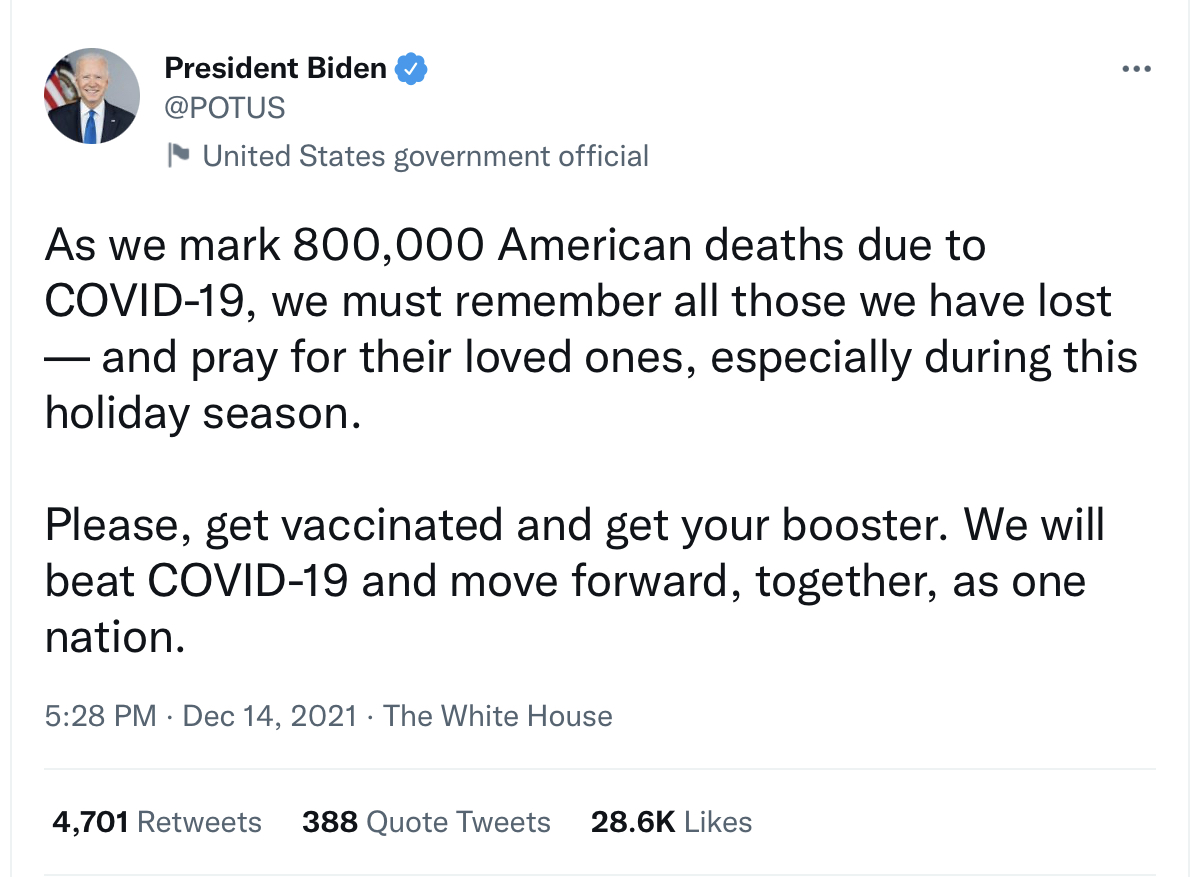
This is important. I’ve had disabled people with fairly “mild” medical conditions (in terms of daily physical anguish) push back when I have tried to talk about disease severity with the critique that I was engaging in some kind of oppression Olympics. Or hierarchy of disability.
https://twitter.com/swampflora/status/1471778657865711616
Not all disabled people have medical conditions but many of us do, and for some communities, that IS the lion’s share of the fight. When you’re not getting your basic medical needs met, and are being actively harmed, you have to share the facts that mitigate that harm.
Granted, baby disableds can sometimes do this in a way that uses ableist tropes, etc., but we need both a “hall pass” as well as ways to gradually learn. In the gaps, I think there are bridging concepts and language we are missing.
I don’t know how are under what auspices, but I would love to see panels, Twitter chats, or other sustained dialogue on this topic. I still think this is going to be key:
https://twitter.com/jenbrea/status/1471513423909310466
Also want to throw out that if I had been allowed the disability accommodations I needed to finish out my grad school semester when I first got sick, I may never have become long-term disabled. There is a direct relationship between accommodations and health. (Thanks @Harvard)
Also worth throwing out that if I had known what I had, and what the implications of dragging myself to class truly were, I would have dropped everything immediately. But we still live in a world where you need medical permission to be sick.
Oh yeah, and my doctors @Harvard would not write me a prescription for a wheelchair and actively discouraged me from getting one, lest I become “dependent.” (They were telling a woman with a tethered spinal cord to walk as much as possible.)
So in my story at least, ableism, medicine, health, physical safety/well-being, iatrogenic harm, are all intertwined. There are 1000 ways society disabled me, and many of those ways was “medicine.”
(*accommodations were near impossible without a diagnosis.)
(*accommodations were near impossible without a diagnosis.)
• • •
Missing some Tweet in this thread? You can try to
force a refresh







